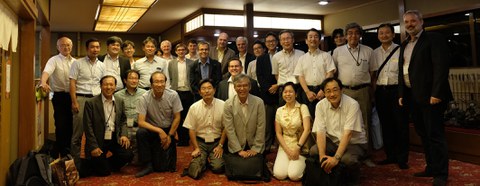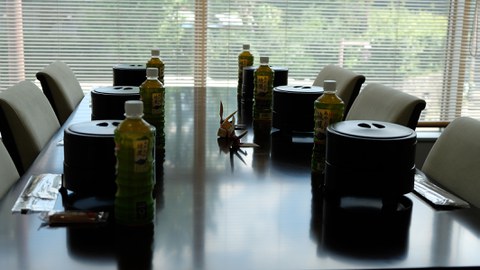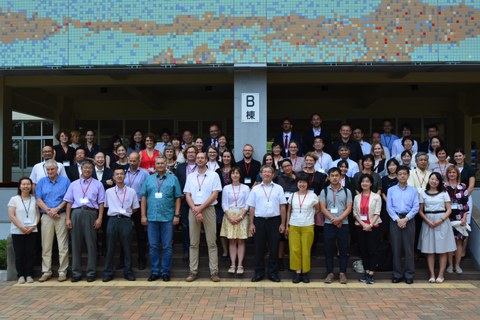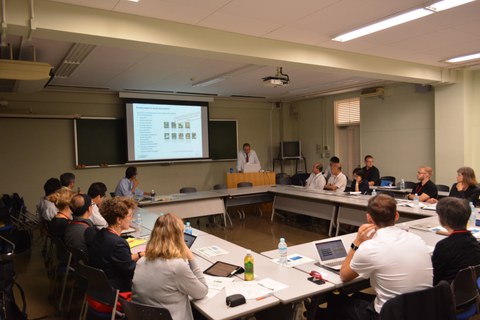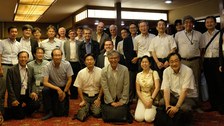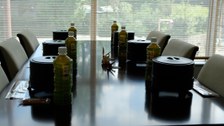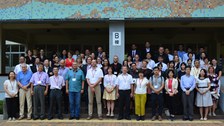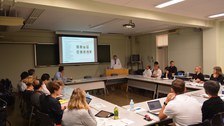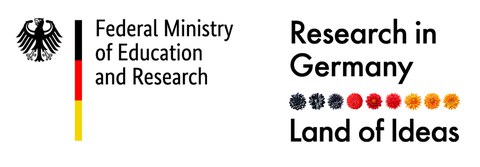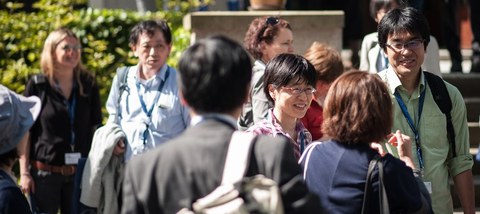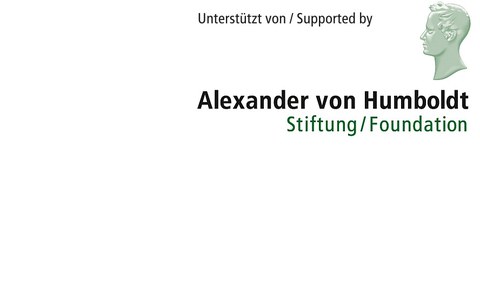Second Interdisciplinary and Research Alumni Symposium iJaDe2018
September 3rd to 7th | Kobe, Japan
The hosting universities
Programme (overview)
Registration
Specialist Programmes
Staying connected: social media
Contact for inquiries
Press Area
Funded by the Alexander von Humboldt Foundation and
the Excellence Initiative of the German Federal and State Governments
From 3rd to 7th September, the Second Interdisciplinary Japan-Dresden Symposium iJaDe2018 will address a large number of research topics in biology, chemistry, mathematics, physics, educational sciences and psychology. The Symposium aims to pool the activities of TU Dresden researchers with those of renowned Japanese universities and institutions.
The event is a joint project of Kobe University, Kyoto University, Osaka University and TU Dresden.
The ties of collaboration linking Dresden to Japanese universities and research institutes have many individual strands – during the last four years, the School of Science of TU Dresden has considered research contacts to Japan to be a strategically relevant focus; for this reason, a great number of joint research projects, guest lectures and lectureships as well as a variety of continuing education formats for young researchers, PhD and masters students have been developed. Meanwhile, more than 50 experienced and junior researchers from Japan have been involved in different projects. They are one of the target groups of the Symposium.
Furthermore, iJaDe 2018 extends a warm welcome to all Japanese scientists interested in forging new contacts with those researchers of TU Dresden who are organising the Symposium.
Moreover, the Symposium will welcome Japanese Alumni of German Universities, e.g. researchers who are former fellows or awardees of German foundations or who have spent some time in Germany, studying or working on research as doctoral candidates, post-doctoral researchers or at a more advanced stage of their careers. Thanks to funding by the Alexander von Humboldt Foundation, participants who meet these criteria are eligible to apply for additional financial support.
Retrospect: Impressions of the first Japan-Dresden Symposium 2016 (iJaDe2016)
Hosting
The Symposium is hosted by Kobe University, Kyoto University and Osaka University.
Organisation and Scientific Boards
Project coordination: Maria Richter-Babekoff, Advisor for International Affairs School of Science and Center for Teacher Education and Educational Research TU Dresden
- Nobuko Ohmido, Graduate School of Human Development and Environment, Kobe University
- Yoshiko Kato, Graduate School of Human Development and Environment, Kobe University
- Takanobu Watanabe, Graduate School of Human Development and Environment, Kobe University
- Kiichi Fukui, Graduate School of Pharmaceutical Sciences, Osaka University
- Hideaki Takabe, Institute of Laser Engineering, Osaka University
- Susann Lederer, Public Relations Advisor, TU Dresden
- Andrea Reinartz, Head of Centre for Teacher Education and Educational Research (ZLSB), TU Dresden
- Nobuko Ohmido, Graduate School of Human Development and Environment, Kobe University
- Kiichi Fukui, Graduate School of Pharmaceutical Sciences, Osaka University
- Qiang Xu, Director of AIST-Kyoto University Chemical Energy Materials Open Innovation Laboratory (ChEM-OIL), Principal Researcher of the National Institute of Advanced Industrial Science and Technology (AIST), and Adjunct Professor of Kobe University
- Thorsten Mascher, general microbiology, TU Dresden
- Thomas Schmidt, plant cell and molecular biology, TU Dresden
-
Stefan Wanke, botany, TU Dresden
-
Oliver Zierau, zoology, TU Dresden
-
Stefan Kaskel, inorganic chemistry, TU Dresden
-
Jan Weigand, inorganic molecular chemistry, TU Dresden
-
Rene Schilling, probability theory, TU Dresden
-
Kai Zuber, nuclear and particle physics, TU Dresden
-
Anja Besand, didactics of civic education, TU Dresden
-
Susanne Narciss, psychology of teaching and learning, TU Dresden
-
Gesche Pospiech, didactics of physics, TU Dresden
-
Marcus Schütte, primary education/mathematical education
-
Axel Gehrmann, didactics and instructional research, TU Dresden
-
Hideaki Takabe, high energy density, Helmholtz-Zentrum Dresden-Rossendorf, Dresden
Programme
Please keep in mind that, due to the interdisciplinary nature of the event, several sections will be running simultaneously!
Venue: Kobe University
| joint event, all-day | Co-operation Talks TU Dresden - Kobe University |
Venue: Takigawa Memorial Hall, Kobe University
Moderation: Prof. Takanobu Watanabe, Kobe University
| 10:00 - 10:05 |
Opening by Prof. Jan Weigand, Vice Dean of International Affairs, School of Science, TU Dresden |
| 10:05 - 10:10 | Welcome address by the Foundation Alexander von Humboldt, presented by Prof. Ludwig Schultz |
| 10:10 - 10:30 | Representative welcome address in the name of the President of TU Dresden and presentation of TU Dresden by Prof. Michael Ruck, Vice President for Structure and Development TU Dresden (2015-2017) |
| 10:30 - 10:45 | Welcome addresses by Prof.Noriyuki Inoue, Vice President Kobe University |
| 10:45 - 11:15 |
Impulse presentation by Dorothea Mahnke, Director DAAD Office Tokyo, Director German Research and Innovation Center Tokyo (DWIH) German-Japanese Cooperation in Education and Research - Current Focus and Desiderata |
| 11:15 - 1:00 |
Discussion Panel, moderated by Prof. Hideaki Takabe, Helmholtz Zentrum Dresden-Rossendorf Cooperation Dresden-Kansai: Chances and Challenges
|
| 1:00 - 2:30 | Lunch break |
| 2:30 - 3:15 | Presentation Alexander von Humboldt Foundation by Prof. Rene Schilling: Research and Research Funding Opportunities in Germany - In the Context of Research Alumni Activities |
|
3:15 – 5:00 |
Presentations by Research Alumni Germany 1. Prof. Hiro Ejiri, RCNP Osaka University, Nuclear Science at CTU Praha, President of Yamada Science Foundation 2. Prof. Jun Yamana, Graduate School of Education, Tokyo University Coffee Break 3. Prof. Susumu Kitagawa, Director of Institute for Integrated Cell-Material Sciences (iCeMS) and Distinguished Professor, Institute for Advanced Study (KU-IAS), Kyoto University 4. Sachiko Fujita and Prof. Yoshitaka Fujita, Department of Physics, Osaka University |
| 5:00 - 6:00 |
The Scientific groups present their symposium topics and participants
|
| 6:15 | Bus Transfer to the Conference Dinner Venue (Hotel Kitano Plaza Rokkoso) |
| 7 p.m. | Welcome Dinner |
Simultaneous Scientific Workshops
| Biology |
Workshop |
| Chemistry |
Workshop |
| Educational Sciences and Psychology | Workshop Venue: Kobe University |
| Mathematics | Workshop Venue: Osaka University |
| Physics |
Workshop |
|
joint event |
Venue: Kobe University or alternatively specialist excursions for the German scientists in small groups (depending on their subject-specific interests) |
Venue descriptions
All maps and information can be downloaded in PDF files:
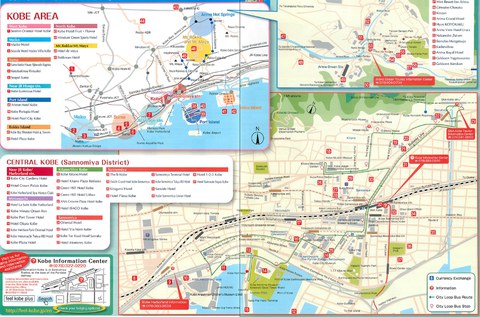
Kobe Area map

Kobe City map (German language)
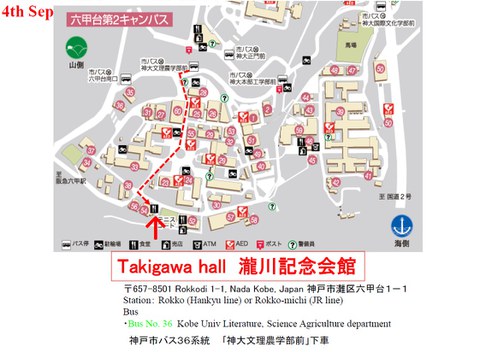
Map to Takigawa Memorial Hall, Kobe University
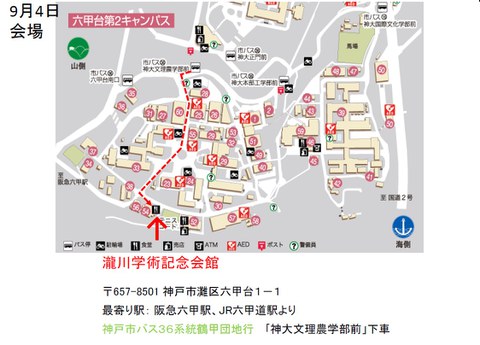
Map to Takigawa Memorial Hall, Kobe University (Japanese language)
Coffee breaks and lunch are free for all Japanese participants. Furthermore, accommodation costs can be paid from the Alexander von Humboldt Stiftung budget; please inform Maria Richter-Babekoff if you wish to take this opportunity.
Registration
For registration, please send us an e-mail!
Specialist Programme
The structure of the specialist programmes is drawn from those thematic priorities that are important for the further orientation of the collaboration between TUD scientists and Japanese researchers. The specialist programme is subdivided into working panels according to individual disciplines. These working panels run in parallel and will include flash talks, scientific presentations and feedback sessions. The latter format is aimed in particular at junior scientists who will present their research and receive feedback from the German and Japanese experts present.
Specialist Programme: Biology
Specialist Programme: Chemistry
Specialist Programme: Mathematics
Specialist Programme: Physics
Specialist Programme: Educational Sciences and Psychology
Specialist Programme: International Affairs
Biology
Venue: B210 (B building) (click here for access map (PDF))
Working Panel: In workshops that span the botany, zoology and synthetic biology, the intention is to establish and strengthen collaborative relations between working groups of TUD and top Japanese universities, in keeping with the motto "Science creates bridges". On the German side, the format is organised by Professors Schmidt, Zierau, Wanke, and Mascher and on the Japanese side, by Professors Nobuko Ohmido (Kobe University), Kiichi Fukui (Osaka University) and Kinya Akashi (Tottori University). Important botanical topics will include the application of genomic sequence data sets for basic research in chromosomes and evolutionary biology. Main research topics of the zoological working group are the effect and the potential of natural and synthetic substances and their influence on human and animal health, and the development of novel methods of detection of anabolic steroids. The synthetic biology part will bring together in vitro and in vivo approaches on “Engineering Life 2.0” at the level of proteins, microbes and animals.
Prof. Thorsten Mascher
Chair of General Microbiology, TU Dresden
Research interests: Antibiotic stress responses and resistance; bacterial gene regulation and signal transduction; Bacillus subtilis as a platform organism for synthetic biology applications; phenotypic heterogeneity and multicellularity of bacterial populations
For more information, see Prof. Mascher's website or Google Scholar profile
Prof. Thomas Schmidt
Chair for Plant Cell and Molecular Biology, TU Dresden
Research interests: genome and chromosome analysis of higher plants, in particular: structure, evolution and chromosomal dynamics of repetitive DNA as the main component of plant nuclear genomes
For more information, see Prof. Schmidt's website
Prof. Stefan Wanke
Professor at the Institute of Botany, TU Dresden
Research interests: plant biodiversity, evolutionary genomics and phylogenetics, plant interactions, plant breeding
For more information, see Dr. Wanke's Google Scholar profile or researchgate website
Prof. Oliver Zierau
Professor of Zoology, TU Dresden
Research interests: characterisation of the cellular and molecular effect of phyto-oestrogens in in vitro and in vivo test systems; the influence of oestrogen on carcinogenesis; the development of pre-screening test for the structurally independent detection of anabolic steroid doping
For more information, see Prof. Zierau's researchgate website
Bridge Dresden–Japan: Biology Workshop
Room: B210 (B Building)
Wednesday, 05.09.2018
| 09:00 – 12:30 |
Synthetic Biology: Engineering Life 2.0 |
| 09:00 |
Hiroshide SAITO* |
| 09:30 |
Ken-ichi YOSHIDA |
| 10:00 |
Thorsten MASCHER* |
| 10:30 | Break |
| 11:00 |
Kenji TSUGE* |
| 11:30 |
Shoji OHUCHI* |
| 12:00 – 14:00 | Break and Lunch |
| 14:00 – 17:30 | Plant genome and evolution I (Chair: Stefan WANKE) |
| 14:00 |
Kinya Akashi* |
| 14:30 |
Julia Naumann* |
| 15:00 |
Songkui Cui* |
| 15:30 | Break |
| 16:00 |
Suguru Tsuchimoto*1, Haiyan Li2, Kyuya Harada2, Kiichi Fukui1 |
| 16:30 |
Beatrice Weber*, Kathrin M. Seibt, Tony Heitkam, and Thomas Schmidt: |
| 17:00 |
Patwira Boonjing* |
Thursday, 06.09.2018
| 09:00 – 12:30 |
Plant genome and evolution II |
| 09:00 |
Kiichi FUKUI* |
| 09:30 |
Shuhei Nasuda*, Tomoki Uchino, Kazuki Murata, Hajime Yamada, and Motorio Yoshioka |
| 10:00 |
Tony Heitkam*, Beatrice Weber, Kathrin M. Seibt, Janine Hofmann, Markus Badstübner, Christina Wäsch, and Thomas Schmidt |
| 10:30 | Break |
| 11:00 |
Haruki Nishio, Tasuku Ito, Mie N. Honjo, Tomoaki Murabaka, and Hiroshi KUDOH* |
| 11:30 |
Aqwin Polosoro*, and Nobuko Ohmido |
| 12:00 |
Nobuko Ohmido |
| 12:30 – 14:00 | Break and Lunch |
| 14:00 – 17:30 |
Session: Effects and potential of natural and synthetic substances and their influence on human and animal health |
| 14:00 |
Hajime Watanabe* |
| 14:30 |
Masami Suganuma* |
| 15:00 |
Oliver ZIERAU* |
| 15:30 | Break |
| 16:00 |
Annekathrin KEILER* |
| 16:30 |
Tomohiko YAMAZAKI* |
| 17:00 |
Toshiaki JO* |
Chemistry
Working Panel: From Molecules to Materials: Synthesis, Catalysis, Energy and Sustainability. The German-Japanese Symposium is intended to evaluate new opportunities for collaboration in the field of chemical technologies. The focus here is on novel molecules and materials that are important for energy storage, energy conversion, catalysis or resource-efficient processes. The workshop will take place at Kyoto University and is hosted by Professor Qiang Xu.
Venue: 2nd floor meeting room, iCeMS Main Building, Yoshida-Ushinomiya-cho, Sakyo-ku, Kyoto (One-minute walk from KyodaiSeimon-mae Stop (Kyoto City Bus))
For further information, see the Chemistry Satellite Symposium's flyer:
Prof. Stefan Kaskel
Chair of Inorganic Chemistry I, TU Dresden, Head of Department Chemical Surface and Reaction Technology at the Fraunhofer Institute for Material and Beam Technology (IWS)
Research interests: energy materials, environmental materials, light and surfaces as well as industrial inorganic chemistry
For more information, see Prof. Kaskel's website
Prof. Jan J. Weigand
Chair of Inorganic Molecular Chemistry, TU Dresden
Research interests: the development of modern and novel concepts in main group chemistry with particular emphases on reactivity studies and sustainable applications; the development and application of multifunctional ligands in coordination chemistry and solvent extraction to recover high-tech metals such as rare earths or precious metals and other strategic elements from various sources in the context of urban mining; the development and improvement of innovative catalyst systems via synthetic and post-synthetic strategies for application in petrochemical industry and resource change to biogenic and fossil residues
For more information, see Prof. Weigand's website
Furthermore, the following associate professors, chair owners at the Faculty of Chemistry and Food Chemistry, TU Dresden, are going to join the workshop:
Prof. Alexander Eychmüller
Physical Chemistry, TU Dresden
For more information, see Prof. Eychmüller's website
Prof. Michael Ruck
Former Vice-Rector of TU Dresden until the end of 2017
For more information, see Prof. Ruck's website
Prof. Eike Brunner
Chair of Bioanalytical Chemistry
For more information, see Prof. Brunner's website
From Molecules to Materials
Organized by:
Stefan Kaskel (TU Dresden), Jan J. Weigand (TU Dresden), Qiang Xu (AIST-Kyoto University ChEM-OIL)
Venue: 2nd floor meeting room, iCeMS Main Building, Yoshida-Ushinomiya-cho, Sakyo-ku, Kyoto [One-minute walk from KyodaiSeimon-mae Stop (Kyoto City Bus)]
www.icems.kyoto-u.ac.jp/en/access/
Scope:
Progress in science significantly benefits from interdisciplinary and international collaboration and networking. The satellite symposium brings together Japanese and German scientists from all chemical disciplines to encourage cooperation and exchange through minds. From synthesis to function, whether molecules or materials are involved, chemical science will further continue to unravel novel phenomena and provide solutions for a sustainable society.
Topics:
- Molecular Chemistry, Supramolecular Chemistry, Solid State Chemistry, Physical Chemistry, Nanochemistry, Catalysis, Energy Materials, Chemical Engineering, Separation, Environmental Chemistry, Resource Sustainability
Wednesday, September 5th:
Please leave 5 minutes for questions!
|
Time |
Program |
Speaker |
|
12.00 |
Get-together (bento-style) |
All |
|
13.00 |
Welcome |
S. Kaskel, J. J. Weigand, Q. Xu |
|
13.10 |
Chemistry and Application of 4th Generation PCPs/MOFs [Abstract] |
Susumu Kitagawa, Kyoto |
|
13.35 |
Nano- to Mesoarchitectonics with Molecularly Thin 2D Oxide and Hydroxides [Abstract] |
Takayoshi Sasaki, Tsukuba |
|
14.00 |
Synthesis and Property of Low-Coordinated Germanium Species Bearing a Bulky Ferrocenyl Group [Abstract] |
Takahiro Sasamori, Nagoya |
|
14.25 |
Synthesis and Properties of Heavier Group 14 Element Analogues of Aryl Anions [Abstract] |
Norihiro Tokitoh, Kyoto |
|
14.50 |
Syntheses in ball mills – mechanochemical pathways towards polymer framework and porous carbon materials [Abstract] |
Lars Borchardt, Dresden |
|
15.15 |
Coffee Break |
All |
|
15.45 |
Superstructures of colloidal nanocrystals [Abstract] |
Alexander Eychmüller, Dresden |
|
16.10 |
Synthesis of zeolite catalysts for the production of light olefins and aromatics [Abstract] |
Norizaku Nishiyama, Osaka |
|
16.35 |
Spent FCC-Catalysts to Industrial Catalyst and Additives – Recycling and Recovery [Abstract] |
Oliver Busse, Dresden |
|
17.00 |
Polymer Chemistry in Metal-Organic Frameworks [Abstract] |
Takashi Uemura, Tokyo |
|
17.25 |
Co-extraction Behaviors of Dyes into an Ionic Liquid Phase Formed in an Aqueous Solution [Abstract] |
Kenji Chayama, Kobe |
|
17.50 |
5-Aminothiazoles: New Fluorescent Molecules Showing Multichromism [Abstract] |
Toshiaki Murai, Gifu |
|
18.15 |
Transfer to Dinner |
All |
|
18.45 |
Dinner |
All |
Thursday, September 6th:
Please leave 5 minutes for questions!
|
Time |
Program |
Speaker |
|
9.00 |
Kinetic Assembly of Porous Coordination Networks [Abstract] |
Masaki Kawano, Tokyo |
|
9.25 |
SynPhos - New Concepts in Synthesis [Abstract] |
Jan J. Weigand, Dresden |
|
9.50 |
Self-assembly of metal-organic polyhedra into supramolecular porous polymers [Abstract] |
Shuhei Furukawa, Kyoto |
|
10.15 |
Synergistic Extraction and Structural Properties of Rhodium Chloride Complexes in the TOA−DHS and TOA−TDGA Systems [Abstract] |
Hirokazu Narita, Tsukuba |
|
10.40 |
Coffee Break |
All |
|
11.10 |
Low-Temperature Synthesis of Inorganic Materials [Abstract] |
Michael Ruck, Dresden |
|
11.35 |
Metal-organic frameworks for energy applications [Abstract] |
Qiang Xu, Osaka/Kyoto |
|
12.00 |
Metal-based Supramolecular Array, Space and Motion [Abstract] |
Mitsuhiko Shionoya, Tokyo |
|
12.25 |
Solid-State and in situ NMR Spectroscopy in Materials Science [Abstract] |
Eike Brunner, Dresden |
|
12.50 |
Lunch Break |
All |
|
14.00 |
Creation of New Conceptual Ionic Crystals Based on Metalloligand Approach [Abstract] |
Takumi Konno, Osaka |
|
14.25 |
Catalytic Activities of Oxychlorides for Oxygen Electrode Reactions in Alkaline Solutions [Abstract] |
Kohei Miyazaki, Kyoto |
|
14.50 |
Lithium Recovery from Untapped Resources [Abstract] |
Kazuharu Yoshizuka, Kitakyushu |
|
15.15 |
Chemistry of active species in the nanospace of metal organic frameworks [Abstract] |
Ryotaro Matsuda, Nagoya |
|
15.40 |
Coffee Break |
All |
|
16.10 |
Control Ion Conductivity in Molecular-based Framework Materials [Abstract] |
Satoshi Horike, Kyoto |
|
16.35 |
Hydrogenation of Cabon Dioxide and Dehydrogenation of Formic Acid for Hydrogen Storage [Abstract] |
Yuichiro Himeda, Tsukuba |
|
17.00 |
Application of Plasmonic Catalysts for Efficient H2 Production from Hydrogen Carrier Molecules [Abstract] |
Hiromi Yamashita, Osaka |
|
17.25 |
Porous Energy Materials: |
Stefan Kaskel, Dresden |
|
17.50 |
Closing remarks |
S. Kaskel, J. J. Weigand, Q. Xu |
The Chemistry Symposium is part of the
Second Interdisciplinary and Research Alumni Symposium iJaDe2018
September 3rd to 7th | Kobe, Japan
September 3rd to 7th | Kobe, JapanSeptember 3rd to 7th | Kobe, JapanSeptember 3rd to 7th | Kobe, JapanSeptember 3rd to 7th | Kobe, Japan
Mathematics
Working Panel: The workshop will focus on stochastic analysis and applications of stochastics to analysis. We are particularly interested in non-local and jump-driven phenomena that are decisive for the modelling of extremes (e.g. in finance, weather etc.), branching phenomena that describe the evolution of ecological systems and are related to nonlinear partial differential equations, as well as multi-scale problems from the material sciences (microstructures, heterogeneous materials) where elliptic operators with random coefficients occur. The workshop is organized by research teams at TU Dresden (Germany) headed by Prof. R. Schilling, Kansai University (Japan) headed by Prof. T. Uemura and Osaka University (Japan) headed by Prof. Y. Shiozawa. We greatfully acknowledge advice by and cooperation with Prof. M. Fukushima (Osaka), Prof. M. Takeda (Tohoku), Prof. T. Kumagai (RIMS Kyoto) and Prof. J. Masamune (Hokkaido). Since stochastics has numerous interfaces with non-mathematical disciplines, the workshop will be open to researchers and experts from all specialist subjects that will benefit from the exchange with the mathematicians from these groups.
For more information, see the Mathematic's program flyer.
Prof. Rene Schilling
Chair of Probability Theory, Institute of Mathematical Stochastics, TU Dresden
Research interests: stochastic analysis; jump processes; stochastic (partial) differential equations; pseudo-differential operators
For more information, see Prof. Schilling's website
The mathematics' workshop programme can be found on the TU Dresden's Chair of Probability's website.
The latest status of the programme can be downloaded as PDF here.
Talks by:
- Hiroaki Aikawa (Hokkaido University)
- Jiro Akahori (Ritsumeikan University)
- Björn Böttcher (TU Dresden)
- Wojciech Cygan (TU Dresden)
- Kenji Handa (Saga University)
- Yuri Imamura (Tokyo University of Science)
- Yu Ito (Kyoto Sangyo University)
- Kamil Kaleta (Wroclaw University of Science and Technology)
- Viktoriya Knopova (TU Dresden)
- Masaharu Nishio (Osaka City University)
- Liang Song (Tsukuba University)
- Tomoko Takemura (Nara Women's University)
- Atsushi Takeuchi (Osaka City University)
- Yoshihiro Tawara (Nagaoka National College of Technology)
- Kazutoshi Yamazaki (Kansai University)
- Kouji Yano (Kyoto University)
Physics
Working Panel: The workshop will present the current status of neutrino research and address some of the numerous questions that are still open concerning this elementary particle. The status of neutrino physics will be discussed during a two-day Symposium in Osaka. The specialist content will be covered by Professors Kai Zuber (TU Dresden) and Yoshitaka Kuno (Osaka University) and supported by representatives from the HZDR (Hideaki Takabe and possibly Daniel Bemmerer). The collaboration between the physicists Zuber and Bemmerer in the field of nuclear astrophysics is an example of the active interconnectedness of Dresden's scientific institutions belonging to the DRESDEN-concept alliance.
Prof. Hideaki Takabe
Researcher for high energy density at Helmholtz-Zentrum Dresden-Rossendorf, Dresden
For more information, see Helmholtz Zentrum Dresden-Rossendorf's website
Prof. Kai Zuber
Group leader, Chair of Nuclear and Neutrino Physics, Institute of Nuclear and Particle Physics, TU Dresden
Research interests: understanding and measuring rare nuclear disintegration; development and precision characterisation of high-purity radiation detectors; determination of physical properties of atomic nuclei -- investigating nuclear reactions; evaluating current measurement data and participation in large-scale experiments on neutrino physics, in particular on neutrinoless double beta decay
For more information, see the Institute for Nuclear and Particle Physics' website
Joint Symposium of TU Dresden and Osaka University on Frontiers of Mathematics and Physics
September 5th (Wed.) @ Nambu Hall
| 09:30 - 10:00 | Joint session of Mathematics and Physics |
|
09:30 - 09:50 |
Introduction of Graduate School of Science, Prof. S. Tajima (Osaka) |
| 09:50 - 10:00 | Overview of Mathematics at Osaka University, K. Yamanoi (Osaka) |
| 10:00 - 10:10 | Overview of Physics at Osaka University, M. Asakawa (Osaka, TDC) |
| 10:10 - 10:20 | Overview of Mathematics at Technical University of Dresden, R. Schilling (TUD) |
| 10:20 - 10:30 | Overview of Physics at Technical University of Dresden, K. Zuber (TUD) |
| 10:30 - 11:00 | Coffee break |
| 11:00 - 12:00 | Physics session - Muon Physics Theory |
| 11:00 - 11:30 | Overview of Charged Lepton Flavor Violation, J. Sato (Saitama) |
| 11:30 - 12:00 | Physics of mu -> e invisible and mu+e -> e+e, Y. Uesaka (Saitama) |
| 12:00 - 14:00 | Lunch break |
| 14:00 - 15:30 | Physics Session - Muon Experiments (1) |
| 14:00 - 14:30 | COMET Experiment, H. Yoshida (Osaka) |
| 14:30 - 15:00 | Muon g-2/edm experiment at J-PARC, R. Kitamura (Tokyo) |
| 15:00 - 15:30 | Muonium Hyperfine splitting measurement, K. Shimomura (KEK) |
| 15:30 - 16:00 | Coffee break |
| 16:00 - 17:30 | Physics Session - Muon Experiment (2) |
| 16:00 - 16:30 | Proton Radius measurement in a muonic atom, S. Kanda (RIKEN) |
| 16:30 - 17:00 | MuSIC at RCNP, A. Sato (Osaka) |
| 17:00 - 17:30 | True muonium experiment, T. Itahashi (Osaka) |
September 6th (Thur.) @ H701
| 09:00 - 10:30 | Physics Session - Double beta decay (1) |
| 09:00 - 09:30 | Neutrino and Leptogenesis, T. Asaka (Niigata) |
| 09:30 - 10:00 | SNO experiment, K. Zuber (TUD) |
| 10:00 - 10:30 | GERDA experiment, B. Schneider (TUD) |
| 10:30 - 11:00 | Coffee break |
| 11:00 - 12:30 | Physics session - Double beta decay (2) |
| 11:00 - 11:30 | CANDLES experiment, T. Kishimoto (Osaka) |
| 11:30 - 12:00 | COBRA experiment, S. Zatschler (TUD) |
| 12:00 - 12:30 | AXEL experiment, S. Obara (Kyoto) |
| 12:30 - 14:00 | Lunch break |
| 14:00 - 15:00 | Physics Session - Superconductivity |
| 14:00 - 14:30 | Interaction of Ferromagnetic and Superconducting Permanent Magnets: Basics and Applications of Passively Stable Quantum Levitation, L. Schultz (TUD) |
| 14:30 - 15:00 | Physics on High-Tc Superconductivity, S. Tajima (Osaka) |
| 15:00 - 15:30 | Coffee break |
| 15:30 - 17:30 | Physics Session - Connections to Nuclear Physics |
| 15:30 - 16:00 | Nuclear Physics Program at RCNP, A. Tamii (Osaka) |
| 16:00 - 16:30 | Astro-particle Physics at RCNP, T. Shima (Osaka) |
| 16:30 - 17:00 | Nuclear Physics, Y. Fujita (Osaka) |
| 17:00 - 17:30 | Closing remark, K. Zuber (TUD) |
| 17:30 | Adjourn |
Educational Sciences and Psychology
Design of Learning and Teacher Education in Germany and Japan
Venue: B208 (B building) (click here for access map (PDF))
Working Panel: The content of the format is designed by the Centre for Teacher Education and Educational Research (ZLSB). The two-day workshop in Kobe will focus on innovative interdisciplinary concepts for teacher education at universities in the interplay of science disciplines, subject didactics (in this case: especially STEM and STEM didactics) and educational sciences (psychology and pedagogy). Since 2016, the ZLSB has been developing collaborative relationships with Japanese partners, which are now to include professors from the STEM area. The BMBF (German Federal Ministry of Research and Education) project TUD-Sylber (synergetic teacher training in the context of the Excellence Initiative), co-ordinated by the ZLSB, opens up interdisciplinary research perspectives that will be presented at the Kobe workshop. These include, for example, research on the professionalisation of the task culture and the mixing of age groups in STEM teaching. Among other things, the Japanese researchers will contribute to research into the culture of the so-called “lesson studies” as part of the interlocking of the different phases of teacher training.
From Germany
Prof. Axel Gehrmann (responsible for Workshop programme)
Chair of General Didactics and Instructional Research, Director of the Centre for Teacher Education and Educational Research (ZLSB); Visiting Professor at Curriculum Center for Teachers, Tokyo Gakugei University (TGU) (2/2016 – 8/2016)
Research interests: history and theory of school and teaching; empirical teacher and teacher training research; regional school development/educational governance; lateral entry into the teaching profession; indicator-based educational reporting
For more information, see Prof. Gehrmann's website and ZLSB's (Centre for Teacher Education and Educational Research) website
Prof. Anja Besand
Chair of Didactics of Civic Education, TU Dresden
Research interests: Civic education, new media and politics, educational science - how people learn about politics and how they construct their ideas about living together in society
For more information, see Prof. Besand's website at TU Dresden (German)
Prof. Susanne Narciss
Chair of Learning and Instruction, TU Dresden
Research interests: designing and evaluation of interactive learning tasks; designing and evaluating feedback in instructional contexts; multimedia tools for learning and instruction; psychological processes in academic writing; self-regulated learning with web-based learning environments
For more information, see Prof. Narciss' website
Prof. Gesche Pospiech
Chair of Didactics of Physics, TU Dresden
Research interests: mathematics in physics teaching; modern physics at school; media in physics teaching;concept development
For more information, see Prof. Pospiech's website
Prof. Marcus Schütte
Chair of Primary Education/Mathematical Education
Research interests: linguistic presentation of mathematical learning processes; learning mathematics against the backdrop of linguistic-cultural plurality; inclusive maths learning; early mathematical learning processes in kindergarten and the family; empirical teaching research with a focus on interpretative teaching research; combination of specific mathematic-didactic, predominantly reconstructive-interpretative approaches with developmental psychology approaches; transitions between day nursery and primary school as well as primary and secondary schools; basic informational competences in primary school
For more information, see Prof. Schütte's website
From Japan
Presentations:
- Prof. Takanobu Watanabe (responsible for Workshop programme, Kobe University)
- Prof. Yoshiko Kato (responsible for Workshop programme, Kobe University)
- Prof. Juniji Besso (Hyogo University of Teacher Education)
- Prof. Atsushi Ito (Konan Women’s University)
- Prof. Kenji Maehara (Tokyo Gakugei University)
- Prof. Shiho Miyake (Kobe College)
- Prof. Noriyasu Nagasawa (Hyogo University of Teacher Education)
- Prof. Yasuyuki Okabe (Kobe University)
- Ass. Prof. Masatoshi Suzuki (Hyogo University of Teacher Education)
- Miyuki Uemura (Kobe University Secondary School)
- Prof. Jun Yoshinaga (Kobe University)
Workshop Participants:
- Prof. Mariko Kaneko (Tokyo Gakugei University)
- Prof. Akira Kawamura (Kansai University of International Studies)
- Prof. Nobuyuki Kurebayashi (Tokoha University)
- Prof. Shigeki Mayama (Tokyo Gakugei University)
- Prof. Akiko Takahashi (Nanzan University)
- Ass. Prof. Kemma Tsujino (Osaka City University)
- Ass. Prof. Ryuta Yamamoto (Shizuoka University)
- Prof. Masaki Yoshioka (Kyoto Prefectural University)
Design of Learning and Teacher Education in Germany and Japan
Room: B208 (B Building)
Wednesday, 5th September
| 10:00 AM | Welcome Address Prof. Watanabe (U Kobe) |
| 10:15 AM |
Prof. Gehrmann/ Rolf Puderbach (TU Dresden) |
| 10:45 AM | Prof. Maehara (TGU) / Prof. Watanabe (U Kobe): Teacher education in Japan – an overview |
| 11:30 AM | Presentation of the two-day Workshop-Program |
| SCIENCE EDUCATION | |
| 11:45 AM |
Prof. G. Pospiech/F. Simon (TU Dresden) |
| 12:15 PM |
Prof. S. Miyake (Kobe College) |
| 12:45 PM | Group discussion |
| 1:30 PM | Lunch break |
| MATHEMATICS EDUCATION | |
| 2:30 PM |
Prof. M. Schütte/ A.-K. Tewes/ J. Jung (TU Dresden) |
| 3:00 PM |
Prof. Y. Okabe/ T. Shimomura (Kobe University/ Shimane University) |
| 3:30 PM | Group discussion |
| CIVIC EDUCATION | |
| 4:15 PM |
Prof. A. Besand/ T. Hölzel (TU Dresden) |
| 4:45 PM |
Prof. J. Yoshinaga/ K. Suga (Kobe University) |
| 5:15 PM | Group discussion |
| 5:45 PM | End |
Thursday, 6th September
| 10:00 AM |
Prof. T. Watanabe (Kobe University)/ Rolf Puderbach (TU Dresden) |
| INTERNSHIPS IN TEACHER EDUCATION | |
| 10:30 AM |
Prof. A. Gehrmann/ T. Bauer (TU Dresden) |
| 11:00 AM | Prof. J. Besso/ Prof. N. Nagasawa/ Ass. Prof. M. Suzuki (Hyogo University of Teacher Education) Reform of Practice Teaching Courses and Growth of Student Teachers: Identifying Achievement Goals based on Teacher Training Standards at Hyogo University of Teacher Education |
| 11:30 AM | Group discussion |
| 12:15 PM | Lunch break |
| INTERACTIVE LEARNING | |
| 1:15 PM | Prof. S. Narciss/ J. Rose (TU Dresden) Empowering smart learning through interactive learning tasks and feedback strategies |
| 1:45 PM | Prof. Y. Kato/ M. Uemura/ Y. Wang (Kobe University)/Prof.A.Ito (Konan Women’s University) Does empowering interactive learning through the collaborative learningschool system promote students’ well-being? |
| 2:15 PM | Group discussion |
| 3:00 PM | Prof. A. Gehrmann (TU Dresden) Reflections on how to implement innovation in practice. A comparison Germany - Japan |
| 3:30 PM | Final discussion, desiderata for collaboration |
| 4:30 PM | End |
SCIENCE EDUCATION
Prof. Dr. Gesche Pospiech/Florian Simon (TU Dresden)
Teacher preparation for implementing interdisciplinary learning arrangements at out-of-school places with focus on physics
In Germany for the last twenty years great efforts have been made to increase interest and motivation of male and female students in the area of science by establishing so-called out-of-school laboratories. These initiatives were accompagnied by research concerning the outcome. In this process teaching-learning laboratories in the context of teacher preparation were established where future teachers gain experience in guiding students in interdisciplinary learning arrangements. This contributes to the success of the laboratories and benefits future teachers providing own teaching experience. In addition to out-of-school laboratories other learning arrangements at places outside of school e.g. museums were established for interdisciplinary approaches. These include STEM subjects (Science, Technology, Engineering and Mathematics) as well as arts or social science showing the relevance of physics for everyday life. This workshop will discuss specific problems in integrating out-of-school places in regular school teaching and in organizing work at the out-of-school places themselves. Furthermore it will present examples how to design adequate university seminars for future teachers.
Prof. Dr. Shiho Miyake (Kobe College)
Short communication but big impact: how a picture story helps young people to learn endangered species
Conservation of endangered species is the most urgent task to be solved for the global environment. According to a government survey, nearly 20% of Japanese citizens said that they did not want to cooperate with conservation of threatened species. To increase awareness of the issue of endangered species and how their survival relates to all citizens, it is necessary to develop accessible teaching materials.
My research group has developed a picture-story based on the relationship between wildlife and humans, including a conflict perspective. In this article, the effect of our picture story will be considered. We focused on Asian elephants as contents of the picture story. I edited the final story into three minutes of digital video, and 37 people (undergraduate students, 18-19 years old) watched it.
The students responded to the impact of the picture story on four main points: (1) ethical/moral aspect; (2) emotional aspect; (3) ecological aspect; and (4) visual appearance aspect. Regarding what they learned from the picture story, students brought up three issues: (1) humans’ impact on wildlife; (2) factors in the decrease in the Asian elephant population; and (3) how we should behave for future environment.
Various species of animals are affected by different problems with respect to humans. I would like to continue research to raise the conservation awareness of people by focusing on other endangered target animals and different methods of providing teaching materials.
CIVIC EDUCATION
Prof. Dr. Anja Besand/Tina Hölzel (TU Dresden)
Civic education or: democratic/citizenship education in school and teacher training
The aim of this presentation is to give an overview about civic education in Germany. To talk about and understand how civic education in school and teacher training programs works, we need to focus on three steps. By the first step civic education is analyzed as a school subject with a very special history in Germany. Secondly it is important to take a look at the standards in the field of civic education. Therefore, we introduce two of the main standards: the process and the performance standard. Final we consider how civic education teachers are trained for the future. For this purpose the current circumstances, challenges and developments of civic education and teacher training will be discussed.
Prof. Jun Yoshinaga/ Keiko Suga (Kobe University)
The issues of civic education in Japanese school
Our interest is to develop the school lessons for cultivating citizenship which holds a balance of self -involvement and logical thinking in judgments on political issues. In Japan, as the age of voting rights has been lowered to 18 years, educational methods of civic education in the high school classes have been actively discussed. Especially, a following issue has been focused. It is the gap between guaranteeing students the political neutrality from teachers’ political opinions and motivating students to make actual political judgments and to participate in actual political processes. In this presentation, first, we introduce some representative or characteristic lesson practices of civic education in Japan, including our own practices. Next, we will make clear the prospect of solving the above issue. Finally, some discussions will be held based on political and educational history and current movements in Japan and in Germany.
MATHEMATICS EDUCATION
Prof. Dr. Marcus Schütte/ Ann-Kristin Tewes/ Judith Jung (TU Dresden)
Collective learning in primary school mathematics lessons
A central topic of teaching and learning research in Germany in the last ten years has been the heterogeneity of students in learning groups. The focus of many projects is on improving the learning conditions for all children in the school system - especially for those learners with special needs. In this context in Germany, and especially in Saxony, the focus is currently being placed on aspects such as language support, multi-age and integration of children with special educational needs. The lecture will introduce current developments in primary school mathematics based on these three aspects. So far, the German school system is characterized by a predominant tradition of separating children through a highly differentiated school system, which in addition to the regular school system teaches children with special needs in a special school system and separates children in the regular school system from grade 5 on according to performance criteria into various secondary schools. A changed approach to dealing with diverse aspects of diversity in schools is currently slowly being established in Germany, certainly not without opposition. This approach is mostly summarized in Germany under the keyword of an inclusive schooling, which means integrating children with diverse skills in joint classes. The effects of this altered image of learning also have a strong impact on subject-related learning, which are seen e.g. in special concepts for differentiated learning in primary school mathematics lessons. On the basis of this changed understanding of scholastic or subject-related learning, the lecture will introduce approaches that address the aspects above in relation to mathematical learning in primary school.
Prof. Dr. Yasuyuki Okabe/ Takato Shimomura (Kobe University/ Shimane University)
Study on association of "the talks of children" and "the constitution of the mathematical knowledge"
"Active Learning" is one of the keywords to attract attention in school education of Japan now. It is intended to be improved to the class that a teacher does not pull a class, and it respects the independence of will of children. Specifically, "Classes centering on children's explanation and talking" is suggested. Keywords of "Active Learning" spread in a school, and a change came to be seen in the consciousness of the teacher. As a result, the scenes which children talk about increase by the classroom of the elementary school. However, it becomes the purpose in those classrooms that children talk and to be active. It is a problem that is class that "the purpose of talking" is lost for children and a teacher. It will be necessary to clarify "the talks of children" and association with "the constitution of the mathematical knowledge" in future.
I am going to argue about the way of the talks of children related to constitution of the mathematical knowledge in arithmetic lesson of the elementary school in this workshop. Specifically, I clarify the state that mathematical knowledge is consist of the real class scene of the elementary school fourth grade (ages9-10) of Japan by the talks of children.
INTERNSHIPS IN TEACHER EDUCATION
Prof. Axel Gehrmann/ Tobias Bauer
Assisted teaching of student teachers in internships: Description of teaching practices and reflection of teaching experiences in the context of TUD-Sylber
One of the aims of the first stage of teacher training in Germany is to question and to break with implicit teaching routines (e. g. Petrik, 2009). By referring to the structural theory approach of teacher professionalization (Helsper, 2014) it seems to be problematic that student teachers may only practice teaching in ways they know from their own schooldays or which they have seen in their internships without reflecting on them (Hascher, 2012). Trying to solve this problem is the intention of the TUD-Sylber project “Teaching patterns in internships“. The research based on content analysis focusses on the question which teaching patterns dominate in the lesson plans that students write within their internships. The results will help to improve our courses offered at the university. Since different chairs of educational and subject-related didactics are responsible for the internships at TU Dresden, we will develop a seminar that focusses on linking the different teaching experiences students have and reflect upon throughout their learning biographies.
The workshop section will give both an insight into the results of the content analysis of lessons plans and the seminar concept.
Prof. Dr. Junji Besso/ Prof. Noriyasu Nagasawa/ Ass. Prof. Masatoshi Suzuki (Hyogo University of Teacher Education)
Reform of Practice Teaching Courses and Growth of Student Teachers: Identifying Achievement Goals based on Teacher Training Standards at Hyogo University of Teacher Education
In Japan, it is crucial issue to guarantee the quality of teacher education. So that it is necessary for teacher candidates to acquire basic abilities and competencies as teachers. Assuring the quality of student teaching programs would contribute to the accomplishment of such a goal.
At Hyogo University of Teacher Education, the curriculum contains ‘practice teaching courses’ in each year between freshman and senior years in order to develop practical teaching skills among students. However, there had been no professional standards identifying the abilities and competencies necessary for becoming teachers, thus there had been no concrete achievement goals for each course of practice teaching. To resolve such gap in our curriculum, we had developed Teacher Training Standards and achievement goals for practice teaching courses, and conducted surveys for the students about how much their abilities and competences were formed through their coursework.
As a result, the achievement levels of practice teaching courses had been accomplished for freshman-, sophomore-, and junior-years students, but the senior-year students had not reached their expected levels. Therefore, senior-year practice teaching had been increased from 2 credits to 3 credits (2 weeks to 3 weeks for student teaching), so that achievement levels of senior-year students improved, and the items such as “mostly acquired” or “moderately acquired” were more frequently used for their evaluation.
As a future challenge, we would like to investigate the reasons why the 3-credit program enhanced the evaluation of students’ abilities and competencies. In particular, we would like to find out whether student teachers’ learning or mentor teachers’ instruction may be different, and whether there are differences in students’ confidence or self-efficacy regarding their teaching practice because of extending the period of student teaching in the senior year.
INTERACTIVE LEARNING
Prof. Dr. Susanne Narciss/ Julia Rose
Empowering smart learning through interactive learning tasks and feedback strategies
Learning tasks and feedback strategies are considered to be backbones of instruction (e.g., van Merrienboer & Kirschner, 2017). Modern information technology allows designing a large variety of learning tasks and feedback strategies. Interactive learning task consist of a stimulus (e.g., an item stem) that requires learners to cognitively engage with the question or task provided in order to generate a response. In contrast to test-items interactive learning tasks offer not only response fields or options (e.g., multiple-choice options; gap-filling boxes), but also scaffolds students can access if they encounter obstacles in generating the response to the task (Proske, Körndle, & Narciss, 2004; Proske, Körndle, & Narciss, 2012). Moreover, they can be combined with interactive (tutoring) feedback strategies. Interactive tutoring feedback strategies combine elaborated formative feedback with tutoring and mastery learning strategies, i.e., they provide such formative feedback that makes learners aware of important gaps existing between their current state of knowledge and their learning goal. Additionally, they provide assistive elaborated feedback (such as hints, explanations, and attribute-isolation examples) that is aimed at tutoring students to detect errors, overcome obstacles and try more efficient solution paths. In doing so, interactive tutoring feedback strategies offer strategically useful information for task completion, without providing immediately the correct solution, and prompt the learner to apply this information to solve the learning task in the next trial. Furthermore, after successful task completion, they provide confirmatory positive feedback components (cf. Narciss, 2008; 2012a, 2012b; 2013; Narciss et al. 2014).
Designing and evaluating (computer-based) interactive learning tasks and interactive feedback strategies is challenging (e.g., Goldin, Narciss, Foltz, & Bauer, 2017; Narciss, 2013). This talk will use insights from current projects (e.g., Serious-Game Serena Supergreen; Task Design in TUD-Sylber) to discuss selected challenges and their implications.
Prof. Dr. Yoshiko Kato/ Miyuki Uemura/ Yiran Wang (Kobe University) /Prof.A.Ito(Konan Women’s University)
Does empowering interactive learning through the collaborative learning school system promote students’ well-being?
The impacts of small-group collaborative learning have been examined and found it relate to student achievement and positive attitude (Johnson et al. 1981, Roseth et al. 2008, Kyndt et al. 2013). Teachers are encouraged to use collaborative methods of instruction in the classroom increasingly. “Positive interdependence”, “face-to-face promotive interaction”, “individual accountability/personal responsibility”, “interpersonal and small group skills”, and “group processing” were clarified as the conditions of productive collaborative learning (Johnson et al. 1991). It is effective to build collaborative learning school system, and practice collaborative learning both inside and outside classroom based on these conditions. Teachers can involve their own devised classwork to the collaborative learning school system, and activate students interactive learning efficiently. In this session “group processing” will be focused on. Through group processing, students refrain their own support. The feedback from teacher or students promote students to be conscious of the relationship with friends for their better performance, share their pleasure towards achievements, and be encourage positive behavior.
On the other hand, we identified that IKIGAI (Japanese originated well-being) affected university students’ self-regulated learning. IKIGAI (well-being) is composed by three factors (positive affect, challenge, social role). Group processing might be promoted positive affect, challenge and social role in their group. The mechanize of IKIGAI (well-being) and students’ performance will be discussed and expect future research and practice.
International Affairs
Venue: B203 (B building) (click here for access map (PDF))
This two-day working panel addresses staff members of Japanese universities who support the multifaceted processes of internationalisation.
The general goal of the event is to enter into a fruitful exchange about the very complex aspects of project administration in the frame of German-Japanese academic collaboration. Representatives of German and Japanese universities repeatedly indicate that there is a great need for discussion about administrative matters in international affairs. With respect to that, the workshop focusses on the following questions:
- How to synchronise institutional frameworks?
- How to design joint solutions for problems that are structural in nature?
- How to standardise and multiply administrative expertise for projects going forward?
The workshop is designed by the following representatives of TU Dresden:
- Andrea Büschel, Staff Unit Internationalisation
- Dr. Andrea Reinartz, Centre for Teacher Education and Educational Research
- Maria Richter-Babekoff, International Affairs Advisor at School of Science
- Sonja Piotrowski, Research Alliance DRESDEN-concept
Wednesday, 5th September
Room: B203 (B Building)
| 9:30 a.m. | Registration |
| 10 a.m. | Introduction of the participants |
| 10:15 a.m. – 12 a.m. |
Presentation of TU Dresden and the research alliance DRESDEN-concept |
| 10:15 – 10:45 |
Andrea Büschel |
| 10:45 – 11:25 |
Sonja Piotrowski and Professor Ludwig Schultz |
| 11:25 – 11:30 |
Hideaki Takabe |
| 11:30 – 11:45 |
Andrea Reinartz and Séverine Friedrich |
| 11:45 – 12:00 |
Maria Richter-Babekoff |
| 12 a.m. – 1:00 p.m. | Lunch Break |
| 1 p.m. – 3 p.m. |
Presentation of relevant funding programs |
| 1:00 – 1:20 |
Yuki Kirihata |
| 1:20 – 1:40 |
Saori Obayashi |
| 1:40 – 2:20 |
Maria Richter-Babekoff |
| 2:20 – 2:40 |
Andrea Büschel |
| 3 p.m. – 4 p.m. |
Discussion panels on the following topics: |
What works well? Challenges? How to meet challenges? |
|
| 4 p.m. – 4:15 p.m. |
Presentation of the discussion results |
| 4:15 p.m. – 4.30 p.m. | Coffee break |
| 4.30 p.m. – 5.30 p.m. | Visions of successful international partnerships– a brainstorming session |
Thursday, 6th September
| 10 a.m. | Introduction of the new participants |
| 10.15 a.m. – 11.15 a.m. | Summary of the workshop results from 5th September |
| 11.15 a.m. – 11.30 a.m. | Coffee Break |
| 11.30 a.m. - 1 p.m. |
One-to-one consultations for representatives of Japanese universities who wish to discuss strategies, goals, problems and more with the representatives of TU Dresden |
| 1 p.m. – 2 p.m. |
Lunch Break |
| 2 p.m. – 5 p.m. |
One-to-one consultations for representatives of Japanese universities who wish to discuss strategies, goals, problems and more with the representatives of TU Dresden |
Please make an appointment via e-mail, if you wish to make use of the one-to-one consultation session strategies, problems, goals and more with the representatives of TU Dresden:
Andrea Büschel:
Dr. Andrea Reinartz:
Maria Richter-Babekoff:
Sonja Piotrowski:
Yon-Soo Tak
Associate Professor
International Affairs Office of Research Administration
Graduate School of Science
Osaka University
Saori Obayashi
Associate Professor
Center for Global Initiatives
Osaka University
Yuki Kirihata
International Student Affairs Division
Department of International Affairs
Osaka University
Minori Adachi
International Affairs
Planning Division
Osaka University
Hitomi Mitsutake
Academic Affairs section
Faculty of Global Human Sciences
Kobe University
Yuriko Okuno
Academic Promotion Division
Student Affairs Department
Kobe University
Eri Anno
International Relations
Faculty of Global Human Sciences
Kobe University
Mariko Suga
International Relations
Faculty of Global Human Sciences
Kobe University
Manabu Takeichi
Deputy Manager
International Liaison Group
Division of International Affairs
Kansai University
Mayumi Hirasawa
International Relations
School of Medicine
Shinshu University
Dr. Jun-ichiro Mori
Vice Manager of the Center for Medical Education and Clinical Training
Shinshu University
Hiroshi Kawamura
Director & Professor
Office for International Academic Support
Faculty of Science
Hokkaido University
Hiroko Hori
International Office
School of Science
Hokkaido Univesity
Dorothea Mahnke
Director
German Centre for Research and Innovation
Tokyo
Andrea Büschel
Staff Unit Internationalisation
TU Dresden
Dr. Andrea Reinartz
Director
Center for Teacher Education and Educational Research
TU Dresden
Severine Friedrich
Public Relations
Center for Teacher Education and Educational Research
Maria Richter-Babekoff
International Affairs Advisor
School of Science and
Center for Teacher Education and Educational Research
TU Dresden
Sonja Piotrowski
Public Relations
Research Alliance DRESDEN-concept
Ludwig Schultz
Professor
Scientific Coordinator
Research Alliance DRESDEN-concept
Hideaki Takabe
Professor
Research Center
Helmholtz-Zentrum Dresden-Rossendorf
Building Bridges - Staying Connected
Contact for Inquiries
Project coordination: Maria Richter-Babekoff, Advisor for International Affairs School of Science and Center for Teacher Education and Educational Research TU Dresden
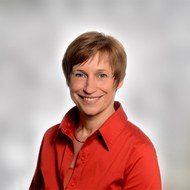 © TU Dresden
© TU Dresden
Referentin für Internationales
NameMaria Richter-Babekoff M.A.
Eine verschlüsselte E-Mail über das SecureMail-Portal versenden (nur für TUD-externe Personen).
Besucheradresse:
Walther-Hempel-Bau, Raum 222 Mommsenstraße 4
01069 Dresden
None
Sprechzeiten:
- Montag:
- 14:00 - 18:00
- Dienstag:
- 13:00 - 16:00
- Mittwoch:
- 13:00 - 16:00
Please make an appointment for my consultation hours in advance

